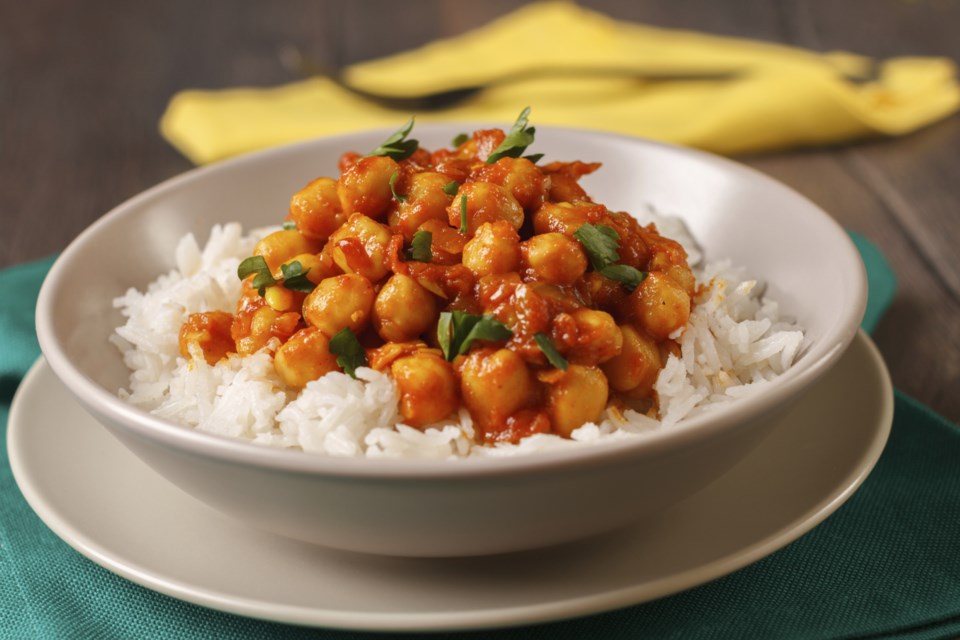January is here. The time of year when everyone has some sort of resolution that generally ends by February/March.
But this year is the one, right? This year, you are going to stick to your guns, you are going to drink less, hit up the gym or yoga studio on a regular basis, and most importantly you are going to eat healthier, no more late-night drunk trips to the corner store for nachos and fake liquid cheese. No sir! This is the year you are going to make healthier choices in your diet. Like, for real this time.
Every year starts pretty much the same: with regret or disappointment, where you feel like you need to make some sort of extreme change which you drunkenly declare at the stroke of midnight on New Year's.
The problem with going to the extreme and placing all sorts of restrictions on yourself is that you are setting yourself up for failure. This is especially true when it comes to making dietary changes.
The best way to rid yourself of the anxiety changing your diet can cause is to ease yourself into the change and leave yourself room for error or cheating.
Go into it without judgement or expectation – like a blind date! – and I can almost guarantee that you will be pleasantly surprised how simple it can be to make lasting, positive changes in your diet.
The following are tips that will help you eat healthier all year long without stress.
Keep healthy snacks in the house
One of the best ways to stay on top of the game is to help yourself avoid temptation. Keeping healthy snacks around the house as opposed to your regular Twinkies will help you stick to your plan and ease into your new improved lifestyle longer. I personally love to always have raw nuts and seeds that I can munch on throughout the days for an added boost of energy.
Eat fresh, local foods
Foods that have been grown closer to home are fresher and therefore are more nutrient dense then their foreign counterparts, which are picked before their time and artificially-ripened in trucks or labs before they make their way to your grocery store. Cause we all need more chemicals and fakeness in our lives, right? Eating local also helps support our local economy and keep small farms in business.
Be realistic
Set goals that you know are going to be attainable right away. Going from a meat eater to raw vegan overnight is not going to happen and will set you up for failure before the end of the month. Ease into your diet at your own pace, reduce the amount of “bad” foods in your diet and start replacing them with healthier alternatives and you will soon realize that you don’t even crave MSG-covered, artificial ketchup chips.
Create meal plans
Save your money! Plan your meals ahead of time and buy the ingredients needed. Get your family/roommates involved and plan it out on a calendar. This is not only ridiculously economical, but will have you eating like a boss.
Replace instead of restrict
This is one of the best ways that you can help yourself transition to a healthier diet. Obsessed with chocolate? No problem! Switch to dark chocolate for a healthier choice. Crazy for chips? There are tons of different chips out there that are made with whole foods that are pretty tasty and will totally satisfy your salty cravings. You could also make your own.
Water
OK, this isn’t a tip, it’s a great suggestion for life. Water composes 75 per cent of your brain, 22 per cent of your bones, removes wastes, helps convert food into energy, and helps your body absorb nutrients among many other valuable functions. So drink up!
80/20 Rule
Let yourself indulge once and a while. If you are eating a whole foods, nutrient-dense diet, most of the time your body will know what to do with the extra crap and calories you have on cheap-beer-and-wing-night at the pub.
RECIPE: Kale and Chickpea Curry
2 cups organic chickpeas
1 stalk Kale
1 small onion
5 carrots (peeled and diced in rounds)
1-4 crushed garlic
3-4 cups of broth
1 1/2 cups yogurt
2 tbsp flour
2 tbs coconut oil or butter
Salt and pepper to taste
Spices (2 tbs of each)
Cayenne
Oregano
Garlic powder
Curry paste
Cumin
1. Steam carrots
2. In a large cast iron pan or pot, saute kale and onions in butter or oil on medium heat
3. Add in all spices
4. When onions are brown and kale is wilted add carrots and cook for 5 minutes
5. Add chickpeas and cook on medium for 5 minutes while constantly stirring
6. Add garlic and broth and cook for another 5 minutes
7. Add yogurt and stir for a few minutes
8. Add flour and cook uncovered for about 5-10 minutes
Serve over rice and garnish with cilantro and sauerkraut!



